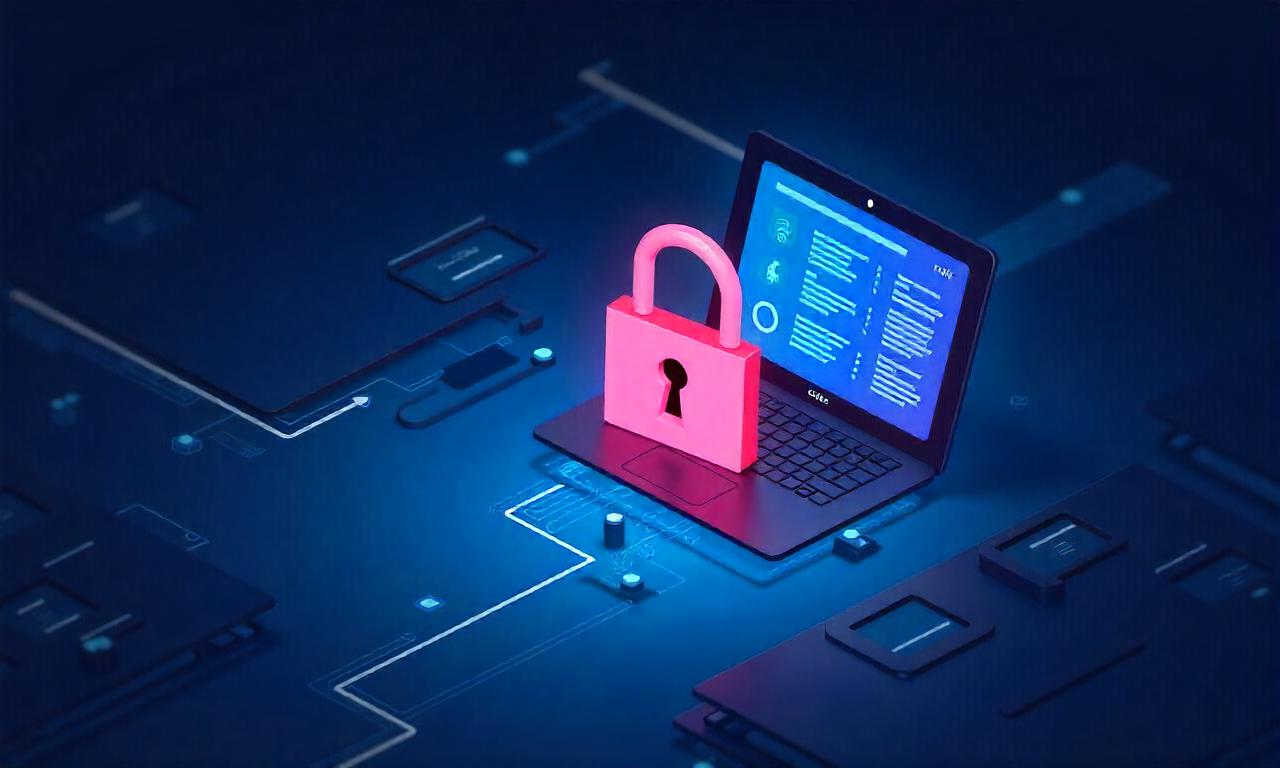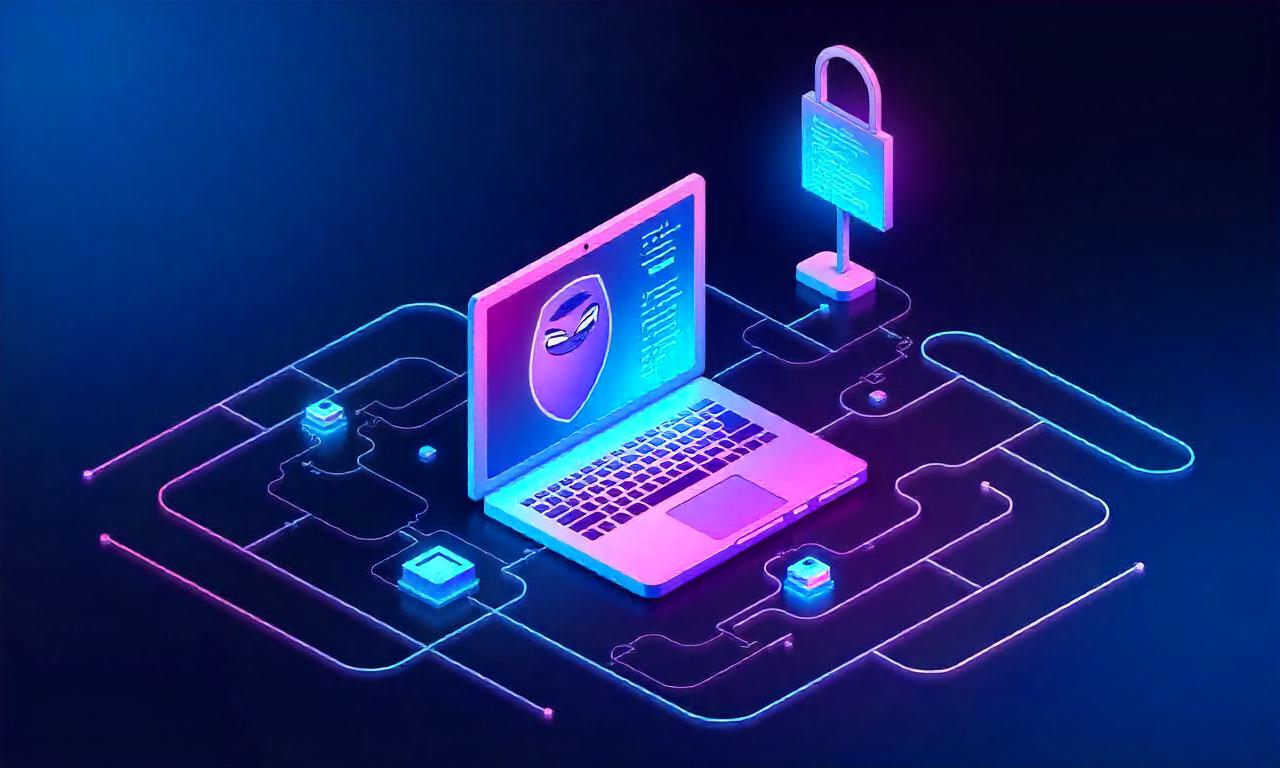Cybersecurity Tips for Small Business Owners: Keep Your Data Safe
In today’s digital-first world, cybersecurity tips for small business owners are more critical than ever. Cyberattacks are no longer limited to large corporations; small businesses are equally vulnerable, often with less resources to defend against threats. From phishing scams to ransomware attacks, the risks are growing, and the consequences can be devastating. Protecting your data isn’t just about avoiding financial loss—it’s about safeguarding your reputation, customer trust, and operational continuity. This article provides a comprehensive guide to cybersecurity tips for small business owners, covering actionable strategies to build a robust defense against online threats.
—
Table of Contents
Toggle1. Understand the Cybersecurity Threats You Face
Small businesses are often targeted because they may lack the advanced security systems that larger organizations have. Understanding the types of threats you’re up against is the first step in protecting your data. Cybercriminals use a variety of tactics, including phishing, malware, and data breaches, to gain unauthorized access to sensitive information. For instance, phishing attacks are among the most common, with hackers sending fraudulent emails to trick employees into revealing login credentials or financial details. These attacks can be incredibly subtle, making it easy for small businesses to overlook them until it’s too late.
To stay ahead, small business owners must recognize the most prevalent threats. Malware, such as ransomware, can encrypt your data and demand payment in exchange for access. This type of attack is particularly dangerous because it often spreads through infected software or malicious websites. Additionally, data breaches can occur due to weak passwords, unsecured networks, or outdated systems. By familiarizing yourself with these risks, you can tailor your security strategies to address them directly.
Another emerging threat is zero-day attacks, where hackers exploit vulnerabilities in software before developers have a chance to fix them. These attacks are especially risky for small businesses that rely on third-party tools without regular security audits. Understanding the landscape of cybersecurity threats helps you prioritize which risks to tackle first. For example, if your business handles customer data, securing your email systems and cloud storage becomes a top priority.
—
2. Implement Basic Security Measures
The foundation of a strong cybersecurity strategy begins with simple yet effective measures. Small business owners often overlook the basics, such as using firewalls and antivirus software, which act as the first line of defense against cyber threats. A firewall monitors and controls incoming and outgoing network traffic, while antivirus software detects and removes malicious programs. These tools are essential for protecting your network from unauthorized access and malware infections.
In addition to firewalls and antivirus, encrypted communication should be a standard practice. Encrypting data ensures that even if it’s intercepted, it remains unreadable to anyone without the decryption key. This is particularly important for sensitive business information, such as financial records, client data, and internal communications. Many businesses use email and messaging apps daily, so incorporating encryption into these channels is a must.
Multi-factor authentication (MFA) is another critical step. MFA requires users to provide two or more verification methods to access accounts, such as a password and a one-time code sent to their phone. This significantly reduces the risk of unauthorized access, even if a password is compromised. Implementing MFA for all business accounts—especially those with access to critical data—can prevent many common cyber incidents.
—
3. Create a Cybersecurity Plan
A well-structured cybersecurity plan is essential for small businesses to stay prepared for potential threats. Start by identifying your business’s most valuable assets, such as customer databases, financial systems, and proprietary information. Once you know what’s at risk, you can allocate resources and prioritize security measures accordingly. For example, if your business relies heavily on online transactions, securing your payment gateway becomes a top priority.
Next, outline specific security protocols for your team to follow. This should include guidelines for data handling, access controls, and incident response. A clear plan ensures that everyone in your organization knows their role in protecting sensitive information. For instance, establishing a policy that requires employees to update passwords every 90 days or to use secure networks when accessing company data can prevent many common security lapses.
Finally, regularly review and update your cybersecurity plan. Cyber threats evolve rapidly, so what works today may not be sufficient tomorrow. Schedule quarterly audits to check for vulnerabilities, test your backup systems, and ensure your team is trained on the latest security practices. By maintaining an adaptable and proactive plan, you can minimize the impact of cyberattacks and ensure your business remains resilient.
—
1. Secure Your Email Accounts
Email is one of the most common entry points for cyberattacks. Phishing emails are designed to mimic trusted sources, such as banks or colleagues, to steal login credentials or money. These emails often contain urgent requests or attachments that look harmless but are actually malicious. Small businesses must take steps to secure their email accounts and protect their teams from falling victim to these schemes.
Implementing email security tools is a practical solution. Services like SPF, DKIM, and DMARC help verify the authenticity of emails and prevent spoofing. These protocols ensure that only authorized senders can use your domain to send emails, reducing the risk of fraudulent messages reaching your employees. Additionally, email filtering software can automatically detect and block spam, malware, and suspicious links before they reach your inbox.
Employees should also be trained to recognize common phishing tactics. This includes looking for typos in email addresses, verifying the sender’s identity before clicking on links, and avoiding sharing sensitive information via email without confirming its legitimacy. A simple habit like checking the sender’s email address for errors can save your business from a costly breach.
—
2. Use Strong Passwords and Password Managers
One of the simplest yet most effective cybersecurity tips for small business owners is to enforce strong password practices. Weak passwords are a common entry point for hackers, who use brute-force attacks or password-cracking tools to gain access to accounts. A strong password should be at least 12 characters long, include a mix of uppercase and lowercase letters, numbers, and special symbols, and avoid using common words or personal information.
To simplify password management, small businesses should use password managers. These tools generate and store complex passwords securely, eliminating the need to remember multiple credentials. Password managers like Dashlane or Bitwarden also offer features like automatic password updates and breach alerts, ensuring your accounts are always protected. By relying on a password manager, you reduce the risk of human error and maintain consistent security across all platforms.
Another key strategy is implementing password policies. Set rules for password length, complexity, and frequency of changes. For example, requiring passwords to be updated every 90 days or restricting the use of the same password across multiple accounts. Additionally, multi-factor authentication (MFA) should be enabled wherever possible, as it adds an extra layer of security beyond just passwords.
—
3. Train Your Employees on Cybersecurity Best Practices
Human error is a major contributor to cyber incidents, making employee training a critical component of any cybersecurity strategy. Even the most advanced security systems can be bypassed if an employee clicks on a malicious link or opens a phishing email. Training your team to recognize and respond to threats can significantly reduce the risk of breaches.
Start with basic cybersecurity awareness programs that cover topics like phishing, social engineering, and safe internet habits. These programs can be delivered through monthly workshops, newsletters, or online courses. For instance, teaching employees to verify the source of emails before sharing data or to report suspicious activity immediately can prevent costly mistakes. Interactive training sessions, such as simulated phishing attacks, are particularly effective because they allow employees to practice identifying threats in a real-world context.
Finally, establish a culture of security within your organization. Encourage employees to ask questions about data handling, use secure networks for work, and report any suspicious activity without hesitation. When everyone understands their role in protecting company data, the overall security posture of your business strengthens.
—
1. Keep Software and Systems Updated
Outdated software is a prime target for cyberattacks because it often contains known vulnerabilities that hackers can exploit. Regularly updating software and systems is a crucial cybersecurity tip for small business owners. Whether it’s your operating system, web browser, or accounting software, keeping these tools current ensures that security patches are applied, reducing the risk of breaches.
Small businesses should prioritize timely updates for all critical systems. Many updates include fixes for security flaws discovered in previous versions. For example, a zero-day exploit (a vulnerability that is unknown and unpatched) can be exploited by attackers before developers release a fix. By staying up-to-date, you close these gaps and make your business less attractive to cybercriminals.
Additionally, monitoring update statuses is essential. Set up automatic updates where possible, and create a checklist to ensure all devices and applications receive the latest patches. For instance, updating your email server, database software, and employee devices can prevent many common security incidents.
—
2. Back Up Data Regularly and Store It Securely
Data loss can be catastrophic for small businesses, whether due to hardware failure, ransomware attacks, or accidental deletion. Regular backups are a fundamental cybersecurity tip for small business owners that can save your business in the event of a disaster. Backups should be stored both on-site and off-site to ensure access even if your physical location is compromised.
To create an effective backup strategy, choose the right storage solutions. Cloud-based backups are convenient and scalable, but you should use reputable providers like Google Drive, Microsoft OneDrive, or AWS. On-site backups, such as external hard drives or network-attached storage (NAS), offer faster access but may be more vulnerable to physical damage or theft. A hybrid approach combines the best of both, ensuring data is protected in multiple locations.
Finally, test your backups regularly to confirm they work. Many businesses fail to recover data because they never check their backup systems. Schedule monthly tests to ensure that you can restore critical files quickly. Also, store backups in encrypted formats to prevent unauthorized access.
—
1. Monitor Your Business Continuously
Cybersecurity isn’t a one-time task; it requires ongoing monitoring to detect threats early. Small business owners should set up monitoring tools that track network activity, system performance, and user behavior. These tools can flag unusual activity, such as large data transfers or login attempts from unfamiliar locations, helping you identify potential breaches before they escalate.
Real-time monitoring is particularly valuable for detecting malware infections or data exfiltration attempts. For example, if your business uses a cloud-based accounting system, monitoring login patterns can reveal if an attacker is accessing your data. Tools like SIEM (Security Information and Event Management) platforms can aggregate and analyze security events from across your network, providing actionable insights.

Additionally, setting up alerts for suspicious activity ensures you’re notified of potential threats immediately. For instance, configuring your firewall to send alerts when a large number of requests are made from a single IP address can help you respond quickly. Regular monitoring also allows you to adjust security measures based on emerging threats, keeping your defenses up-to-date.
—
2. Secure Your Network and Devices
Your network and devices are the gateways to your business’s data, making them prime targets for cybercriminals. Small businesses often use Wi-Fi networks without proper security, leaving them open to eavesdropping or hacking. To secure your network, enable WPA3 encryption on your router and use a strong, unique password. Avoid using public Wi-Fi for sensitive tasks, and consider creating a separate network for guest devices to limit access to your business systems.
Devices such as computers, smartphones, and tablets should also be protected with antivirus software and firewalls. Ensure all devices are running the latest operating system updates, as these often include security patches. For example, an unpatched Windows system could be exploited by ransomware that encrypts your files and demands payment. Additionally, disable unused ports and services on your devices to reduce the attack surface.
Finally, physical security is often overlooked. Secure your office with biometric access controls or keycard systems to prevent unauthorized entry. For portable devices, use encryption and device tracking features to protect data in case of theft. Combining digital and physical security measures creates a comprehensive defense against cyber threats.
—
FAQ: Cybersecurity Tips for Small Business Owners
Q: What is the most common cybersecurity threat for small businesses?
A: The most common threat is phishing, where attackers send fraudulent emails to trick employees into revealing sensitive information. Small businesses are often targeted because they may have less robust defenses compared to larger organizations.
Q: How can I protect my business from ransomware attacks?
A: To prevent ransomware, regularly back up data, keep software updated, and train employees to recognize suspicious emails or links. Ransomware often spreads through malicious attachments or untrusted websites, so a proactive approach is key.
Q: Are there affordable cybersecurity solutions for small businesses?
A: Yes, many cloud-based security services offer cost-effective solutions. For example, Google Workspace includes email encryption and spam filters, while Bitdefender and Malwarebytes provide affordable antivirus options.
Q: Should I use a password manager for my small business?
A: Absolutely. A password manager helps generate and store complex passwords, reducing the risk of password-related breaches. It also simplifies multi-factor authentication (MFA) by managing recovery codes and login credentials securely.
Q: How often should I update my software and systems?
A: Update software and systems as soon as updates are released, especially for critical applications like payment gateways or customer databases. Setting up automatic updates ensures you never miss a patch, even when you’re busy.
—
1. Evaluate Your Cybersecurity Needs
Before implementing cybersecurity tips for small business owners, take the time to evaluate your specific needs. Every business has unique risks depending on its industry, size, and digital footprint. For example, a retail business handling credit card data may require PCI DSS compliance, while a freelance service provider might prioritize secure communication channels.
Start by assessing your current security posture. Conduct a risk assessment to identify vulnerabilities in your systems, networks, and data storage. This evaluation should include questions like: Are your employees trained to recognize phishing scams? Do you use encryption for sensitive data? By understanding your security gaps, you can allocate resources effectively and prioritize the most urgent threats.
Next, consider your budget. While advanced security tools may seem expensive, many cost-effective solutions exist for small businesses. For instance, open-source antivirus software like ClamAV or security-focused cloud services can provide robust protection without a large investment. Tailoring your cybersecurity plan to your business size and budget ensures that you’re not overspending on unnecessary features.
—
2. Establish a Cybersecurity Budget
A dedicated cybersecurity budget is essential for small businesses to invest in reliable security tools and services. Many owners underfund their cybersecurity efforts, leading to vulnerable systems and potential breaches. Allocate a portion of your monthly or annual budget to security infrastructure, such as firewalls, antivirus software, and cloud storage solutions.
To optimize your budget, prioritize high-impact investments. For example, endpoint security solutions can protect individual devices, while network monitoring tools help detect unusual activity. If your business processes online payments, PCI DSS compliance may require specific security measures that are worth the investment. Additionally, cyber insurance is a cost-effective way to mitigate financial risks from data breaches or ransomware attacks.
Finally, review and adjust your cybersecurity budget regularly. As technology evolves, so do the threats, and your security needs may change. For instance, the rise of cloud computing might require additional investments in cloud security tools. By maintaining a flexible budget, you ensure your business is always prepared for emerging risks.
—
1. Partner with Cybersecurity Experts
While many cybersecurity tips for small business owners can be implemented in-house, partnering with cybersecurity experts offers additional benefits. These professionals can provide tailored solutions, identify hidden vulnerabilities, and ensure your business complies with industry-specific regulations. For example, small businesses in healthcare may need to meet HIPAA standards, which require strict data protection measures.
Consulting experts also helps you stay informed about the latest threats. Cybersecurity professionals are constantly monitoring global attack trends and updating their strategies to counter emerging risks. They can recommend tools like intrusion detection systems (IDS) or security information and event management (SIEM) platforms that enhance your defenses. Additionally, they can conduct penetration testing to simulate attacks and uncover weaknesses in your system.
Moreover, outsourcing cybersecurity tasks can save time and resources. Managing security updates, employee training, and threat monitoring can be time-consuming, especially for business owners juggling multiple responsibilities. By working with experts, you ensure that your cybersecurity efforts are professional and effective, giving you peace of mind.
—
2. Stay Informed About Cybersecurity Trends
The cybersecurity landscape is constantly evolving, so staying informed is a vital cybersecurity tip for small business owners. Subscribe to industry newsletters, follow cybersecurity blogs, and attend webinars or workshops to keep up with the latest threats and solutions. This knowledge helps you make informed decisions about your security strategy.
For instance, AI-driven cyber threats are becoming more common, with attackers using machine learning to craft personalized phishing emails or identify vulnerabilities in real time. Understanding these trends allows you to adapt your defenses accordingly. Additionally, regulatory changes can impact your cybersecurity requirements, such as new data protection laws that mandate stricter encryption standards or access controls.
Finally, sharing knowledge with your team ensures everyone is aware of current threats and best practices. This can be done through regular security briefings or posting updates in your company’s internal communication channels. By fostering a culture of continuous learning, your business remains proactive in the face of evolving cyber risks.
—
Table: Cost of Cybersecurity Breaches for Small Businesses
| Metric | Small Businesses | Large Businesses |
|---|---|---|
| Average Cost of a Data Breach (2023) | $4.54 million | $9.44 million |
| % of Breaches from Phishing | 43% | 28% |
| Time to Detect a Breach | 280 days | 159 days |
| Cost to Rebuild After a Breach | $250,000 | $3.86 million |
Source: IBM Cost of a Data Breach Report, 2023
This table highlights why small businesses need to invest in cybersecurity tips for small business owners. The average cost of a data breach is significantly lower for small businesses, but the time to detect an incident is much longer. By implementing preventive measures, small businesses can reduce the cost to rebuild and minimize damage.
—
Conclusion: Protect Your Business with Proactive Cybersecurity
Cybersecurity is a continuous process that requires vigilance, planning, and adaptability. Small business owners must integrate cybersecurity tips for small business owners into their daily operations to create a resilient defense against online threats. From securing email accounts to updating software and training employees, each step plays a critical role in protecting sensitive data.
By investing in basic security measures, regular backups, and employee education, you can significantly reduce the risk of cyber incidents. Additionally, staying informed about cybersecurity trends and evaluating your needs ensures that your strategy remains relevant and effective. Partnering with cybersecurity experts can provide valuable insights and help you navigate complex security requirements.
Ultimately, the cost of inaction is high. A single data breach can lead to financial loss, reputational damage, and even business closure. Implementing these cybersecurity tips for small business owners today can save you from significant losses tomorrow.
—
Summary: Cybersecurity Tips for Small Business Owners
This article provides cybersecurity tips for small business owners to protect their data and ensure business continuity. Key strategies include understanding common cyber threats, implementing basic security measures like firewalls and MFA, and training employees to recognize phishing attempts. Regular software updates, data backups, and network monitoring are also essential for maintaining a secure environment. A comprehensive cybersecurity plan and budget allocation help businesses stay prepared for evolving threats. By prioritizing proactive security, small business owners can safeguard their data and reduce the risk of cyberattacks.
















